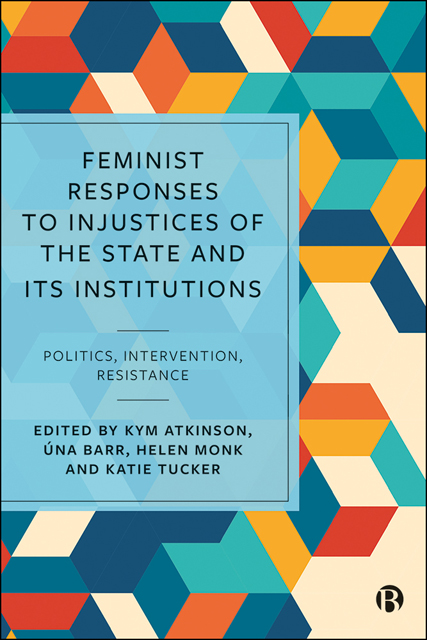 Feminist Responses to Injustices of the State and Its Institutions
Feminist Responses to Injustices of the State and Its Institutions 6 - Gender, Policing and Social Order: Restating the Case for a Feminist Analysis of Policing
Published online by Cambridge University Press: 17 June 2023
Summary
Introduction
In March 2021, the Sarah Everard case brought the policing of women in Britain into the public spotlight in a manner not witnessed for decades. The murder of Sarah reignited debates about women’s experiences of men’s violence and highlighted the police’s role as both perpetrators of that violence (the man who raped and murdered Sarah was a serving Metropolitan Police officer) and as ineffective protectors. The police response to the vigil held in Sarah’s memory in the days after her death was widely criticized for being aggressive and disproportionate (Graham-Harrison, 2021) and brought women’s experience of policing into sharp relief, for many people for the first time. Despite the exoneration of police in a subsequent report by the police inspectorate (HMICFRS, 2021), the policing of the vigil raised significant questions about women’s rights to protest the institutional and societal failure to tackle men’s violence. Furthermore, in an echo of women’s struggles in the past, the vigil exposed the ways in which the police respond to defiant women. While the work of pioneering service providers and campaigning organizations such as Women’s Aid, Rape Crisis, Southall Black Sisters and Sisters Uncut have long highlighted the failures of police responses to men’s violence, the Everard case arguably shone a light on the police as an organization marked by institutional misogyny and centrally involved in the maintenance of a gendered order.
This chapter seeks to reassert the case that policing is, and always has been, a feminist issue. By examining current police responses to women in a range of contexts, the chapter argues that policing requires a renewed feminist analysis that should be central to a feminist criminology in the 21st century. Starting from the public debate and activist responses to the Everard case, the chapter begins by examining a range of contemporary issues that highlight problems in the police response to women and girls and, as a result, points to the enduring relevance of gender to analyses of policing. We suggest that considering the police response to women as both victims and offenders remains a key task for feminist criminology, but the case studies highlighted in the first part of the chapter suggest that this binary framing of women’s interaction with police limits the terrain of our analysis.
- Type
- Chapter
- Information
- Feminist Responses to Injustices of the State and Its InstitutionsPolitics, Intervention, Resistance, pp. 121 - 140Publisher: Bristol University PressPrint publication year: 2022


